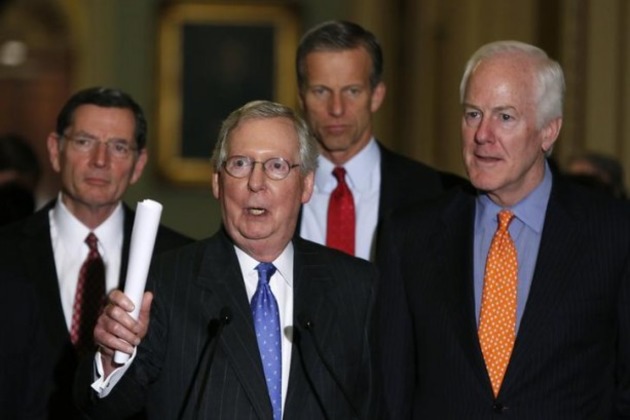Senate Republicans are showing us why they should lose their majority
Back in the days when he pretended to care about something more than sucking up to power, Graham used to say Republicans would have to live with what they had done to Obama’s 2016 nominee, Merrick Garland. In October 2018, shortly before taking the gavel of the committee that will consider Trump’s nomination, Graham promised: “If an opening comes in the last year of President Trump’s term, and the primary process has started, we’ll wait till the next election.”
Now — surprise! — Graham has promised, via Twitter: “I will support President @realDonaldTrump in any effort to move forward regarding the recent vacancy created by the passing of Justice Ginsburg.” His rationale, if you can dignify it by calling it that, is that Democrats did things that offended him. So it’s payback time.
Oh, and let’s consider the sanctimonious and pseudointellectual Sen. Ted Cruz (R-Tex.), whom Trump has said he would consider for future openings on the court. When running for president in early 2016, he loftily declared to NBC’s Chuck Todd: “It has been 80 years since a Supreme Court vacancy was nominated and confirmed in an election year. There is a long tradition that you don’t do this in an election year. And what this means, Chuck is we ought to make the 2016 election a referendum on the Supreme Court.”
What Cruz said wasn’t true, as is so often the case. There had indeed been instances of presidential nominees being confirmed during election years. In February 1988, a Democratic-led Senate voted 97-0 to put Ronald Reagan’s pick, Anthony M. Kennedy, on the court.
But this was only the beginning for Cruz. When it still appeared that Hillary Clinton would win in 2016, he also suggested that the court could get along just fine with only eight members indefinitely. Now — surprise! — Cruz is warning that having an even number of justices constitutes a “grave danger.”
To their credit, a few Republicans are standing up to this head-spinning pivot on the part of their leaders. Just hours before Ginsburg’s death, Sen. Lisa Murkowski (R-Alaska) told Alaska Public Radio that she would not vote to confirm a Supreme Court nominee so close to the election. So has Sen. Susan Collins (R-Maine), who is in the reelection fight of her life this year.
Will they be joined by others, or crack under the pressure they are sure to get from the Republican base? All it would take is a handful of Republican senators to prevent McConnell from going down this path.
I’ve covered Congress long enough to know that Democrats have not always chosen the high road either. We have reached this point in part because of then-Majority Leader Harry M. Reid’s 2013 decision to take what was then known as the “nuclear option” and abolish the filibuster rule that required 60 votes for the executive branch and lower-court nominations. The Republicans extended it to Supreme Court nominations in 2017.
Thus far, neither party has suffered any consequences. But voters can rectify that on Nov. 3, when 23 Republican senators, including Graham and McConnell, will be on the ballot.
A net loss of just four of them — or three if Democrats win back the White House, and a Vice President Kamala D. Harris gains the tie-breaking vote in the Senate chamber — would send the Republicans back into the minority.
It would be a corrective they richly deserve, and even more important, a lesson for future senators that principles mean nothing if they can be bargained away for power.


